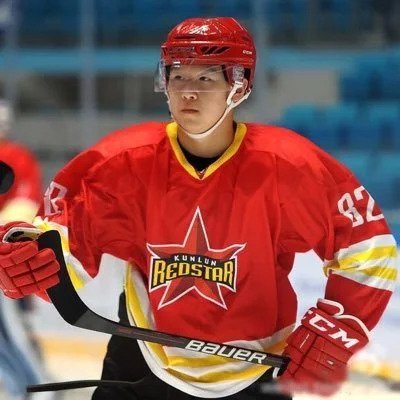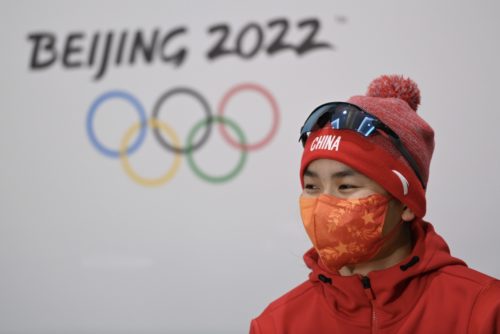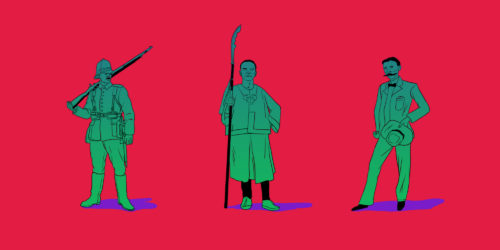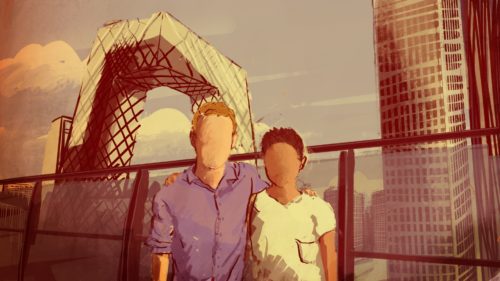The ‘Fella’ who paved the way for ice hockey in China
Greg MacIsaac, who passed away last fall, dedicated himself to growing hockey in China. With the Beijing Winter Olympics recently concluded, we take a moment to remember the efforts of MacIsaac in not only developing Chinese hockey, but nurturing the wider community around him.

It was not until he died unexpectedly that I learned his name was Greg MacIsaac. To me, and to all who knew him, he was Fella.
“Fella” is what he called everyone (“How you doin today, fella?” “You want a beer, fella?”), and so it became his name. Fella died a few months ago of a rare form of cancer, but as the Olympic ice hockey competition progressed in Beijing, I couldn’t help but reflect on Fella’s legacy — the mark that he left on the development of ice hockey, bīng qiú 冰球, in China — and the impact that he had on expat life in Beijing more broadly.
Fella was a member of one of the earliest waves of foreigners to remain in China and to find success. Although he only had some teaching experience and little background in school administration, he was one of the founders of Western Academy Beijing (also known as WAB), which became one of the premier international schools in the country.
Davin Mackenzie, who was both a hockey teammate of Fella’s and the parent of a few of Fella’s students, described Fella’s ethos, and by extension, WAB’s approach, as follows: “While some of the other international schools prided themselves on the elite accomplishments of their most gifted students, WAB set itself apart by defining success as every single student reaching whatever their full potential may have been.” Fella spoke often about the value of passion and inspiration, and he even gave a TED Talk on the subject.
Fella certainly lived the principles that he imparted on his students. Passion and inspiration were the guiding lights of his life’s journey. Prior to settling in Beijing, Fella was a good friend and travel companion of the legendary primatologist Jane Goodall. And before that, Fella allowed his deep curiosity for exploring the spiritual sides of life to lead him to a kibbutz (a collective agricultural cooperative) in Israel. There, he farmed, studied, prayed, and communed from the ancient Jewish homeland.
When Fella moved to China, he brought all his skills and experiences with him. Canadian-born and, by extension, raised on ice hockey, Fella recognized that the core hockey skills of team synergy, maximum effort, and cerebral strategy were of great value to the young kids he was teaching.
He dedicated himself to growing the sport in China, and eventually coached a team to the Quebec International Pee-Wee Hockey Tournament, easily the most prestigious hockey competition for children under the age of 12. The tournament boasts alumni whose names are synonymous with greatness in the hockey world, including Guy Lafleur, Wayne Gretzky, Mario Lemieux, and Patrick Roy. And there was Fella, with his team of players from China, showing them there is no reason they should not compete with the best.
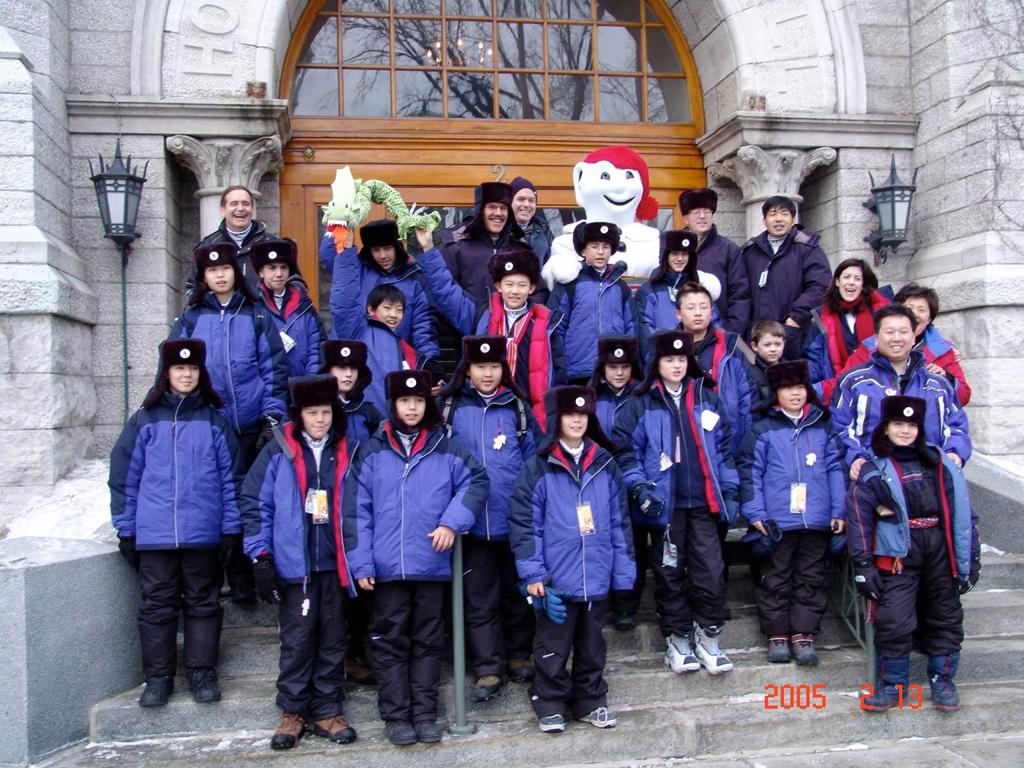
In 2015, Fella bought a bar and restaurant in Beijing, and named it Fella’s. Sadly, the bar shut its doors permanently due to COVID-19. But while it was around, it was a center of camaraderie among foreigners in Beijing. Hockey was always on the TV screens, and the décor made it seem like a nearly century-old watering hole in some Canadian hockey town. Fella was very generous with his space, allowing community members to host fundraisers there and to ply their talent with stand-up comedy and open mic nights.
A year after the bar opened, the Kunlun Red Star, a brand-new team playing in the Russia-based KHL professional ice hockey league, played its first home game at Wukesong Arena in Beijing. Only a few years previously, nobody had imagined that there would be professional hockey so quickly and at such a high level in China. But the Olympics changed everything.
Initially, China hockey followers like Fella and consultant Mark Simon were happy for the opportunities they expected the Red Star to create for young players. When the time came, however, the Chinese Olympic committee chose not to invite the young and talented players from China onto the Olympic roster.
Simon, a fellow Canadian and a dear friend of Fella’s, followed a banking job to China and stayed to coach, manage, and grow the sport of hockey in the country. He has mentored many of the internationally competitive hockey players to have come out of China in the last decade. He had hoped to see those Chinese players get serious playing time against the best in the world. Instead, the committee simply rented the Kunlun Red Star for the Games and called it the Chinese national team, even though most of the players were American, Canadian, or European.
No doubt Fella would have been disappointed to see this, but he would have turned it into a teaching opportunity for his students. “He was like an awesome uncle,” said Simon. “He’d always be there to help.”
Fella had his amusing quirks. For example, he only had two fingers on his right hand, and would share a different creative (and sometimes gruesome) story about how that came to pass. It was not until many years later that he confirmed to his closest friends that he had simply been born with the deformity. He also barely spoke any Chinese, which is a kind of accomplishment after living in the country for over 30 years.
The Olympics are about the competitions and the drama that take place inside of the sporting venues, but the Games are also about the characters and the special stories they share. There are moments that lift our spirits, spark intense conversation, and inspire emotional debate. The Olympics are about champions as well as the remarkable characters from all over the world that make the competitions what they are.
Fella was a unique individual, who experienced a great deal, and made a tremendous impact on every community he touched. It’s no exaggeration to say the Beijing expat community would have developed in a different manner if not for him. This is doubly true for the Chinese ice hockey scene.
On Sunday, Finland won the gold medal match in the men’s Olympic hockey competition, beating the ROC 2-1. I have no doubt Fella would have been watching, with plenty of constructive criticism to spare. Fella exemplified the expat’s dream in China. He made the most of his skills, he helped children discover their true academic potential, and he developed and grew the sport he loved.



